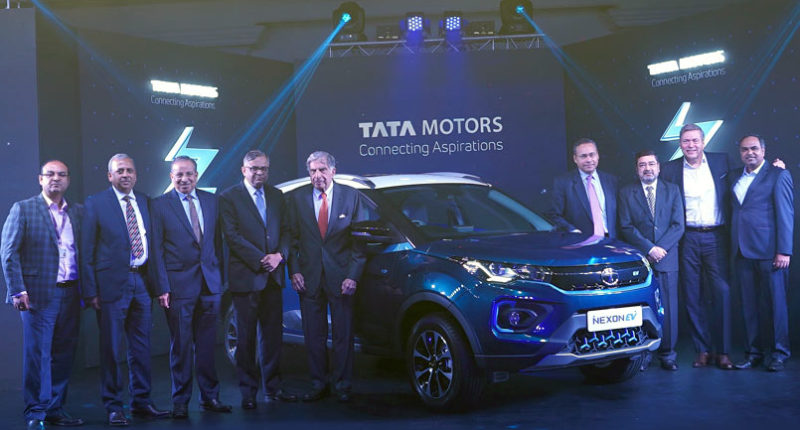If you go to India and ask common folks about the Tata group, you would always find them relating multiple key products in their life, to this one brand. Such has been the influence of Tata over the Indian economy, that whenever something game-changing happened in the country’s industrial circuits, it was always Tata. Be it aviation (JRD Tata made flying mainstream in India) or be it the luxury hotel culture, the company has made a lasting impact.
In a similar game-changing mood, Tata Group’s automotive division, Tata Motors today announced plans to create an entire ecosystem for electric vehicles in the country. These announcements came at the launch of an electric variant of its popular compact sports utility vehicle, the Nexon. Six Tata group company CEOs came together in Mumbai on Tuesday to showcase the group efforts for making electric cars and batteries, set up charging stations and build a battery recycling plant.
The Nexon EV is the first vehicle among a total four electric car models that Tata plans to bring to the market over the next 2 years. And unlike most electric cars in India, these are some serious EVs, promising lasting range, impressive power delivery and an affordable price tag. The Nexon EV for example, would be priced in the range of ₹15-17 lakhs, thereby positioning the vehicle as the most affordable long-range EV in the domestic market until now. The price sits well in the usual compact SUV segment as well.
This is a major milestone set by Tata Group towards creating a comprehensive ecosystem for electric vehicles in the country. Another major accomplishment by this move can be influencing future strategies of other Indian car manufacturers towards cleaner vehicles.
The point that this event is not another launch was emphasized by Guenter Butschek, managing director of Tata Motors. He says, “This is the launch of an ecosystem, which is the real need, not just another vehicle launch.” He also said the group companies will continue to come together to help further the electric mobility ecosystem.
Companies from Tata conglomerate such as Tata Motors, Tata Chemicals, Tata Power and Tata Croma are all contributing their resources towards the development of this electric vehicle ecosystem.
Tata Power, which currently has 100 charging stations across India, plans to add another 650 stations that will be distributed across more than 20 Indian metro cities over the next year. These fast-charging stations will be linked with a mobile application developed by TCS, which can be used for making payments and checking availability of chargers.
Tata Chemicals spoke about investing in manufacturing electric cells locally as they are the biggest hurdle for building affordable Indian EVs. Rs. 100 crore has already been spent on the purchase of land for the plant in Dholera, Gujarat. An additional investment of approximately Rs. 800 crore has also been announced for the next three years. It will have an initial capacity of 200 megawatts which can be scaled up to 2 gigawatts according to demand.
Tata Croma stores will make its contribution by displaying EVs, offering test drives and charging stations, and maybe by selling cars also.
Tata Motors emphasized that it wanted to be the biggest player in the electric vehicle space in the country.





